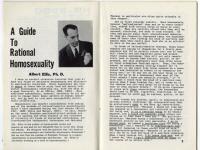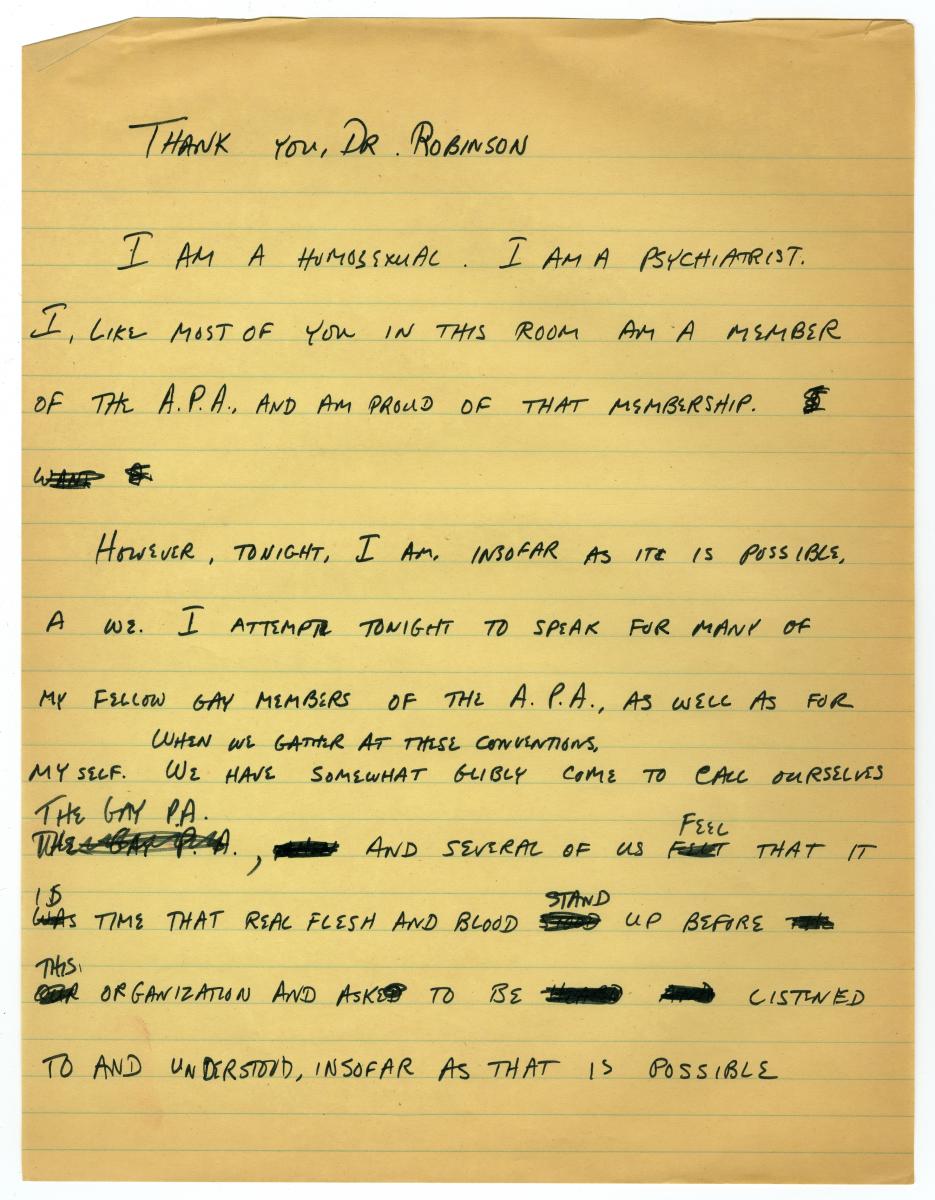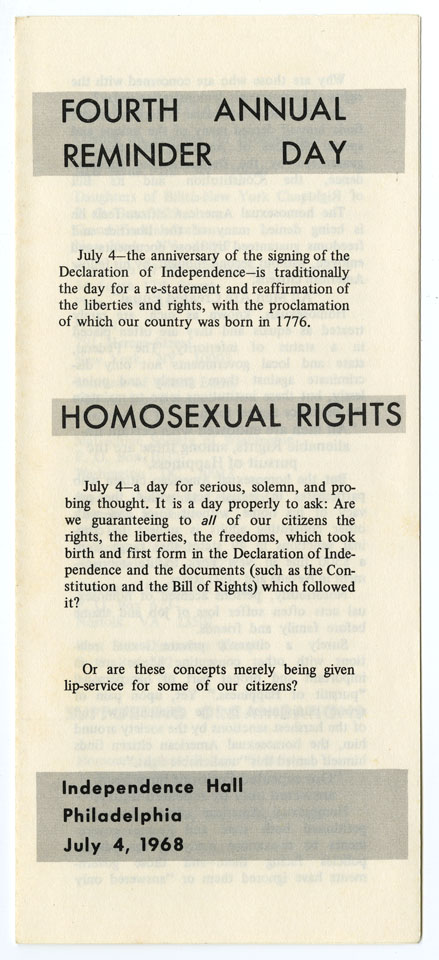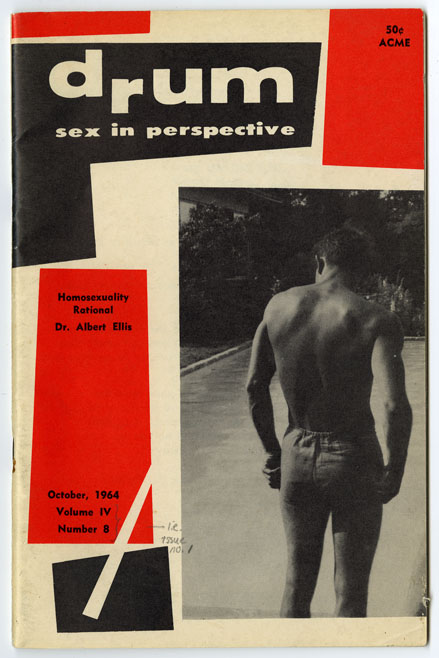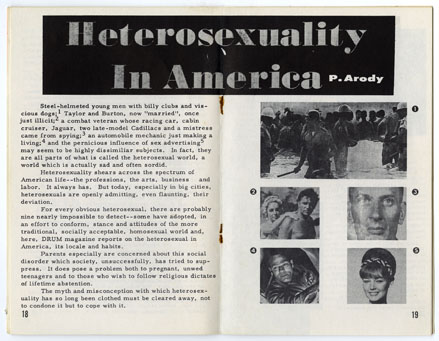In the wake of the historic Supreme Court decision on the Defence of Marriage Act and on the anniversary of the Stonewall Riots, now seems like an appropriate time to highlight some of the Historical Society of Pennsylvania's collections related to LGBT movements and history. This is not, of course, an exhaustive list. One of the wonderful and infuriating things about working in archives is never really being sure what's in every folder and on every page of every volume. This can be an exciting part of research -- will the next folder contain a love letter? A recipe for soup? Queen Victoria's wedding cake? But when you're looking for materials about repressed groups of people, this uncertainty can be daunting, as many scholars know. Evidence of these lives can be hidden or lurking in the margins of other texts, requiring some intellectual digging from a researcher and sometimes actual digging (sans-shovel) from your friendly archivist or librarian.
This is a growing area of our collections, which nonetheless contains some important documents. The most impressive, to me, is the entire John Fryer collection (3465). You can read more about Dr. Fryer and his work in a blog post by my colleague, Willhem Echevarria, but here's a quick overview:
Dr. Fryer was a practicing psychiatrist and a homosexual. His 1972 anonymous speech (conducted through a mask and a voice-distoring microphone) to the Annual Meeting of the American Psychiatric Association was one of the first steps in getting homosexuality removed from the Diagnostic and Statistical Manual. Although it took until the 1980s for all mentions of homsexuality to be removed from the DSM, Dr Fryer's speech is still considered a turning point. The collection also contains personal and professional documents and correspondence, his diary, and photographs.
The archives of HSP also contain a pamphlet about Reminder Day (collection 3682), a series of yearly demonstrations held at Independence Hall in the 1960s. Although the Reminder Day protests stopped in the aftermath of Stonewall, they represent some of the first gay rights protests in the United States and laid the groundwork for future movements. The demonstrations were designed to both raise awareness about the rights denied to lesbian and gay people, and to present them as conforming to a certain middle class ideal (and thus being employable). The former was accomplished through picket signs, and the latter through a strict dress code for protesters and an enforcement by protest organizers of quiet, docile behavior.
We also have a typescript of West Chester State Teachers College student Donald Vining's diary (Am.137452). Vining was a student at WCSTC in the 1920s and 30s, and his diary records his experiences there, including being a gay college student in the early 20th century.
In the library, we have a wide variety of materials, including (but of course not limited to):
- The first issue of Drum, an early gay pride magazine published in Philadelphia
- Programs and flyers from the Philadelphia Gay and Lesbian Theater Festival
- "Birthplace of the Nation:" Imagining Lesbian and Gay Communities in Philadelphia, 1969-1970 by Marc Stein
- The "Fun Gay Ladies:" Lesbians in Cherry Grove, 1936-1960 by Esther Newton
- Philadelphia journals New Gay Life and The Gay Alternative
- Way Gay News: A Monthly Publication of the William Way Lesbian, Gay, Bisexual and Transgender Community Center in Philadlephia, PA
The John J. Wilcox, Jr. LGBT Archives at the William Way Community Center is the place to go for a more comprehensive look at LGBT life in Philadelphia from the 1960s through the present. Finding aids for some of the Wilcox Archives materials are available online.

